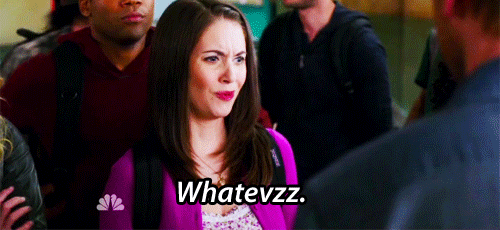Still trying to ensure the perfect fall 2015 schedule? Take a look at some of these Honors courses with open seats!
HONR 2048:11 – Islamic Economics, Finance and Development: Theory versus Reality w/ Prof. Askari
CRN: 65653; R 12:45-3:15 PM
Islam is an immutable rules-based system with a prescribed method for humans and society to achieve material and non-material development grounded in rule-compliance and effective institutions. The collection of rules from the Quran and the life of the Prophet Mohammad, which in turn defines institutions, afford guidelines for economic and financial systems and for development. We survey the essential features of Islamic economic and financial systems, and the Islamic vision of human and economic development. While the ideal is not in place anywhere in the Muslim world, we endeavor to explain the divergence from the ideal in human, economic and political development in the Middle East region (or their “Islamicity”).
HONR 2048:12 – The Way We Now Think w/ Prof. Grier
CRN: 67219; W 3:30-6:00 PM
Much of how we approach daily life, how we conceive the activities of our day and how we respond to events, has been shaped by the literature of production. This literature has been largely ignored in the academy. We teach the newest and latest theories of production as the most efficient ways of running a company and the best changes of making money, but we dismiss the older ideas as out of date or, at times, wrong. This course considers the literature of production as a coherent body of knowledge and shows how this literature has shaped our organizations and the way that we think. It considers older workers in this literature in the same kind way that we consider classic fiction and poetry, as exemplars of their time and as building blocks for our modern approach to production. Because of this approach, the course stops substantially short of our age. The newest literature it considers comes from the late 1980s and early 1990s.
HONR 2048W:80 – Race, American Medicine, and Public Health: African-American Experiences w/ Prof. Gamble
CRN: 66977; MW 12:45-2:00 PM
This course focuses on the role of race and racism in the development of American medicine and public health by examining the experiences of African Americans from slavery to today. It will emphasize the importance of understanding the historical roots of contemporary policy dilemmas such as racial and ethnic disparities in health and health care. The course will challenge students to synthesize materials from several disciplines to gain a broad understanding of the relationship between race, medicine, and public health in the United States. Among the questions that will be addressed are: How have race and racism influenced, and continue to influence, American medicine and public health? What is race? How have concepts of race evolved? What are racial and ethnic disparities in health and health care? What is the history of these disparities? What factors have contributed to these disparities? How have African Americans, the medical and public health professions, and governmental agencies addressed disparities in health and health care? What have been the experiences of African Americans as patients and health care providers?
HONR 2053:MV – Past and Future, w/ Prof. Caws
CRN: 67224; W 11:10-1:00 PM
According to one well-known theory of time, past and future do not exist. The present is all that exists (or all that exists is in the present); the past once existed but does so no longer, the future will exist but not yet. According to a rival theory everything exists all at once and it is only our position in this totality that makes some events appear past and some future. There are problems with both of these theories, and one of the tasks of the seminar will be to look for answers to them. Past and future, however, have content and meaning far beyond academic exercises in the theory of time. They pervade our lives, which are continually in transition from the one to the other. There are many pasts, personal, familial, social, institutional, national, all the way up to galactic or cosmic, and as many futures, feared or conjectured or hoped for. People troubleshoot when the past delivers an unacceptable present, or strategize when deciding what to do now about an uncertain future. They reminisce, or they plan. How much of the past (how far back) can we recall, or recover? How much of the future (how far off) can we foresee, or prepare for? From tradition to prophecy, from historical novels to science-fiction fantasies, from the Big Bang to the eventual dissipation of the universe, there are enough puzzles and projects in this domain to keep conversation going for the rest of our lives, let alone a semester. The seminar will as always be driven, once it has gotten underway, by the interests of its members, but perhaps it will help us to find some point of reflection and understanding that will make sense of our complex relation to such a perennial topic. There is a statue of “The Future” outside the National Archives, bearing the Shakespearean inscription “the past is prologue.” Whoever chose it cannot have read Shakespeare very carefully – or maybe it represents only too accurately a particularly American attitude. In any case it is an example of how past and future penetrate public space. A good one to begin with.
 If you’re taking a contract course, make sure to get your Honors Contract complete.
If you’re taking a contract course, make sure to get your Honors Contract complete.






